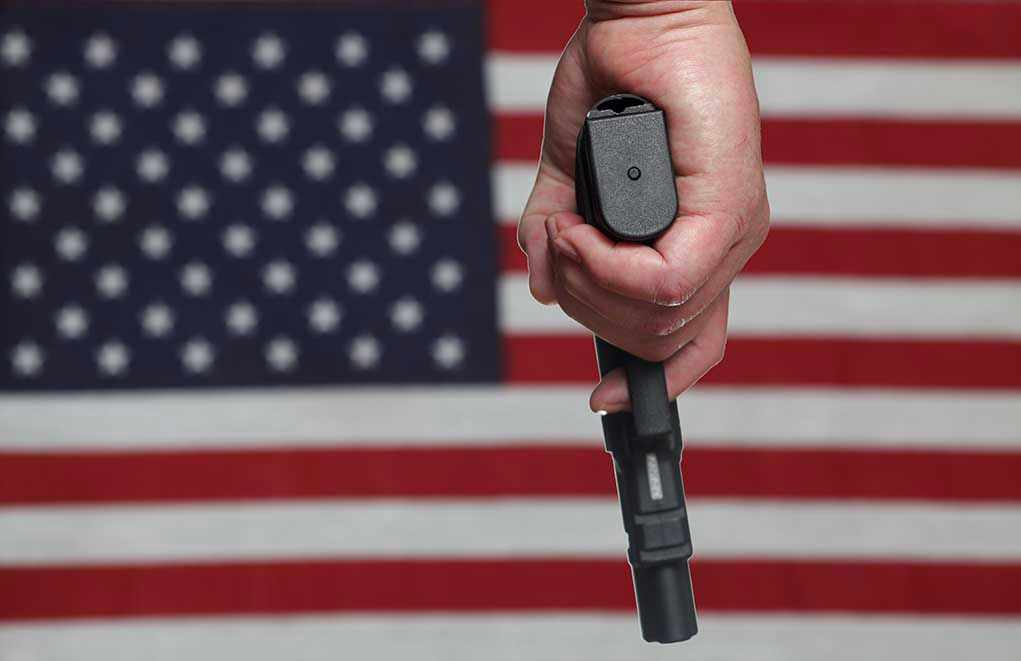
Senator John Kennedy’s fiery dismissal of calls for more gun control following the tragic Midtown Manhattan shooting has reignited the debate over the Second Amendment and mental health issues.
At a Glance
- Senator Kennedy rejects calls for stricter gun control after NYC shooting.
- The shooter, Shane Devin Tamura, left a note blaming CTE and the NFL.
- Four people were killed, including an NYPD officer, before the shooter died by suicide.
- The incident raises questions about mental health and gun access in high-security areas.
Senator Kennedy’s Strong Stance Against Gun Control
Senator John Kennedy (R-LA) has once again taken a firm stand against calls for stricter gun control following the tragic shooting at a Midtown Manhattan skyscraper. This high-profile incident, involving a gunman armed with an M4 rifle, resulted in the deaths of four individuals, including a brave NYPD officer. The shooter, 27-year-old Shane Devin Tamura, then took his own life. In the aftermath, Kennedy made it clear that he believes the issue is not with gun access but with inadequate controls on individuals who pose a threat to public safety.
Senator John Kennedy Dismisses Calls for Gun Control in Wake of NYC Shooting: ‘Need More Idiot Control'https://t.co/aucngxEH58
— RedState (@RedState) July 29, 2025
The senator’s comments come at a time when emotions are running high, and many are calling for immediate legislative action. However, Kennedy argues that additional restrictions on law-abiding citizens are not the answer, drawing attention to the need for addressing the root causes of such tragedies, namely mental health issues and personal responsibility. This perspective aligns with the views of many Americans who are tired of seeing their constitutional rights threatened in the wake of criminal acts.
The Shooter’s Note and Its Implications
Shane Devin Tamura, who carried out this heinous act, left behind a note that has added a complex layer to the discussion. In it, he referenced CTE, a neurodegenerative disease linked to repeated head trauma, and blamed the NFL for his condition. This has sparked debate over the potential link between brain injuries, mental health, and violent behavior. While experts continue to study these connections, it’s important to recognize that CTE can only be diagnosed post-mortem, and its effects on behavior are still not fully understood.
Despite this, the note has intensified scrutiny on the NFL and similar organizations regarding player safety and their role in addressing long-term health issues. As the investigation into Tamura’s background and motives continues, the public and policymakers are left to grapple with these challenging questions about mental health, accountability, and the implications for public safety.
Gun Control Debate Heats Up
The tragic events in Manhattan have once again brought the gun control debate to the forefront of national discourse. Proponents of stricter gun laws argue that incidents like this highlight the urgent need to close loopholes and restrict access to military-style firearms. Opponents, including Senator Kennedy, maintain that such measures would not prevent determined individuals from obtaining weapons illegally. They stress the importance of protecting Second Amendment rights and focusing on more effective solutions, such as improving mental health care and ensuring thorough background checks.
New York City, known for having some of the strictest gun laws in the country, serves as a backdrop for this debate. Despite these regulations, Tamura was able to carry out his attack, raising questions about the effectiveness of existing laws and the need for a more comprehensive approach to preventing gun violence.
A Call for Common-Sense Solutions
As the nation mourns the loss of innocent lives and debates the best path forward, it is crucial to focus on common-sense solutions that address the root causes of violence without infringing on constitutional rights. This includes enhancing mental health services, improving public safety measures, and fostering a culture of personal responsibility. By tackling these issues head-on, we can work towards a safer society while preserving the freedoms that define our nation.
In the coming weeks, the conversation around gun control and mental health is sure to continue, with stakeholders on all sides voicing their perspectives. It remains to be seen how policymakers will respond to these complex challenges, but one thing is certain: the American people deserve solutions that honor both their safety and their rights.












